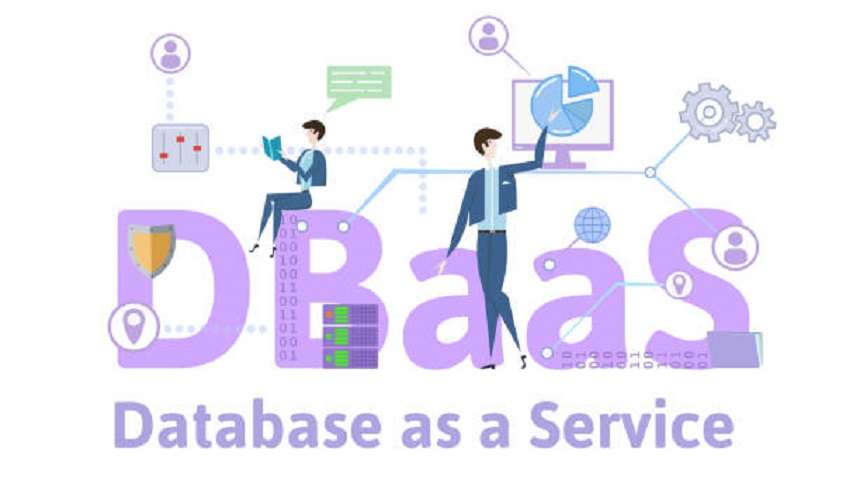Nowadays, databases are the backbone of any business, enabling enterprise application management to key business decision making. The major development in database management services lately is that you can now buy it as cloud services than maintaining the complicated in-house server-side application for it.
While we discuss databases being availed as cloud-based services, we are mentioning Database-as-a-Service (DBaaS). Any such solution is not a silver bullet to make the database admins and analysts’ lives easier, but DBaaS has some significant advantages. At the first point, it is highly flexible. There are many advantages and disadvantages of using DBaaS in light of the database services we used for a long time.
When it comes to the real-time usage of DBaaS, it doubles up as an engine-style software that can boost up the large array of Software-as-a-Service (SaaS) applications. There are many add-on features in DBaaS applications like direct data visualization tools to organization-wide ERP (enterprise resource planning) platforms. DBaaS also comes as a solution unto itself with advantages and disadvantages related to the specific database functionalities.
The major benefits of DBaaS include greater access to technologies, lower entry barriers, etc., which were previously not available for smaller enterprises. The digital native use cases like the Internet of Things (IoT), machine learning, data streaming, artificial intelligence, and hybrid apps are also adjunct to the assistive technologies of modern-day computing enabled with DBaaS.
Database-as-a-Service’s major disadvantages include the rigidity of databases, complexity of data, integration limitations, performance issues related to networks, and complexity of the process when it comes to large scale data transfers. Suppose you move sensitive data between the DBaaS provider and other sites. In that case, you may also need to take many security precautions, which involve anything from strong identity management protocols to implantation of VPN, etc.
Adding to these, there also may be different kinds of DBaaS service providers who do nothing other than offering large-scale cloud-based service of hosting providers who find database as only one of many services they offer. So, choosing the right DBaaS provider among such a list is a cumbersome task. So, when choosing a cloud-based DBaaS (database-as-a-service) services, enterprise decision-makers are largely confused as there are various choices available in the DBMS market lately. Here, in this article, we will discuss the top cloud database services by testing each for advantages and disadvantages.
Remember, the list is not based on ranking, but these are some random picks, which you may evaluate based on your specific needs to make a selection.
Top DBaaS solution in 2020-21
- Amazon RDBS
Amazon Relational Database Service is not so user-friendly when it comes to the database newbies operating it. Still, with the right professional help, it can be a game-changer for those who search for a highly functional relational database service.
Combined with Amazon cloud, this relational database services offers many add-on features like better scalability and analytical functionality than other relational databases of its class. Amazon is also continuously developing the same, and we can expect many improvements in it over a longer period.
- Google BigQuery
Google BigQuery is another great DBaaS system, which is ideal for cloud-native enterprises. Moreover, BigQuery can be an ideal choice for anyone who works on developing machine learning applications or handling massive data sets.
Offered by Google, which is a big name in cloud-based services, BigQuery is also adopted by many enterprise giants, which ensures the best in class support. Putting a big competition to Amazon’s Relational Database Service, BigQuery is also in constant development to be equipped with more features in the coming years. For database-related services, you can take the assistance of expert providers like RemoteDBA.com.
- Microsoft Azure SQL Database
Microsoft Azure’s SQL Database is known as one of the top choices in Database-as-a-Service (DBaaS) for developers, database administrators, and business analysts as it features many exemplary controls and so easy to use.
There are many user-friendly features and control available on Microsoft Azure SQL Database and comes from the technology giant MS, which makes it more admirable and reliable to meet a wide range of enterprise database needs.
- MongoDB Atlas
Many experts call MongoDB Atlas one of the dream databases for the developers. There are many features comping packed with this simpler and user-friendly DB. The user interface is much comfortable for even the non-tech-savvy users to operate.
MongoDB Atlas also has a lot of automation controls than any other DBaaS solution of its class. Offering tones of controls to ensure flexibility and ease of use, the providers also ensure built-in replication along with zero lock-ins.
- IBM Db2 on Cloud
IBM Db2 on Cloud is yet another dream Database-as-a-Service solution for the enterprise application developers. It offers many features for business analysts, too, in terms of its analytical and reporting capabilities.
The major catch of IBM Db2 on Cloud is that the users, even without much technical skills or analytical experts, will be able to use this without a database admin’s assistance. Users, even with minimal skills, will be able to manipulate the database through the user-friendly interface.
- SAP HANA Service
Even though SAP HANA Service has to develop and nurture over time, it is still found to be a very mighty and user-friendly Database-as-a-Service solution. It comes as a full suite that features many important capabilities and advantages for the developers and administrators.
SAP is there in the information technology services industry for a long. The latest offering of cloud-based Database-as-a-Service had also gained popularity with a few Fortune 500 companies that have implemented the same. Talk to professionals if you are uncertain about its usage. They will guide you in the best way.
The bottom line here is that data science and database administration process are not easy, even if you get the best database services. The DBaaS services are much easier than other conventional solutions, and some of them have the power to make even the average developers and business analysts perform at their optimum.
